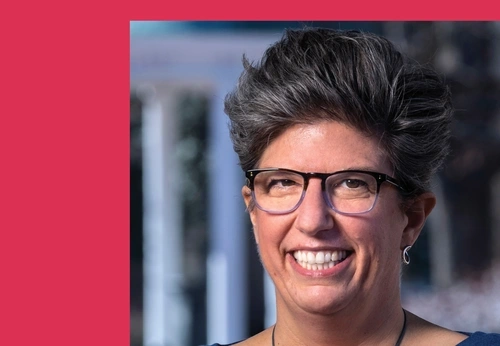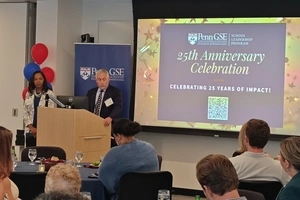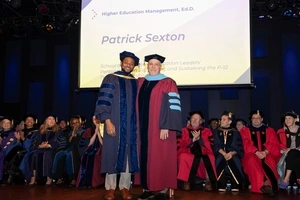Becci Menghini - Advocating to Strengthen a Workforce
Executive Doctorate in Higher Education Management, 2014
Becci Menghini, GRD’14, wrote her doctoral dissertation at Penn GSE on crisis management at public universities. Seven years later, she says she could “write a few more chapters. I think I’m living my dissertation day in and day out.”

In January 2020, Dr. Menghini became the vice chancellor for human resources and equal opportunity and compliance at the 25,000-employee University of North Carolina-Chapel after serving in an interim capacity. Typically, her office manages human resources policies and handles related complaints. She says the issues of the times—a pandemic, a social justice movement, and a nation divided—have added to the challenges of her role. Events at UNC-Chapel Hill concerning a Confederate statue, campus reopening plans, and an attempt to hire Pulitzer Prize–winning journalist Nikole Hannah-Jones have made headlines and prompted many alumni, faculty, staff, and students to raise concerns about the state legislature’s role in university governance.
“People in positions of leadership sit in a very delicate and precarious spot in thinking about how they respond to national events in this moment,” she says. While Menghini notes that taking action is complicated by the fact that UNC is a public university beholden to its state legislature, she reports she is making headway in addressing pressing concerns. “Diversity is an enormous part of my job,” she says. “We depend on a diverse workforce, and only when we are fully diverse—not just in numbers, but when everybody has the ability to be fully themselves and fully present—can we benefit wholly and do our best work.”
“People in positions of leadership sit in a very delicate and precarious spot in thinking about how they respond to national events in this moment.”
—Becci Menghini, GRD’14
To build trust, Menghini spends time listening to campus constituencies, including affinity groups such as the Carolina Black Caucus. She also has shifted diversity and inclusion from her division to the Provost’s Office, where a new chief diversity officer was recently hired. “The notion that the diversity office sat in the same place as compliance didn’t sit well,” she says. “It didn’t say what we wanted it to say.”
Menghini credits the cohort model of Penn GSE’s Executive Doctorate in Higher Education Management program with giving her a lasting peer network and inspiring her approach to workplace trainings and orientations. “There are benefits to being treated like a cohort—employees can gain built-in mentorship and a sounding board,” she says.
Currently, she is grappling with equity around flexible work schedules. A pilot is allowing some departments to work remotely. But, she asks, is that equitable—especially when housekeeping or dining room staff, among the lowest-paid employees, must come to campus? Will remote workers, often women, miss out on mentorship or promotion? For these reasons, Menghini places importance on assessment structures to gauge the effect on equity. Ultimately, she says, “I see my role as one of advocacy, looking at the broad impact.”








